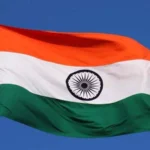Republic Day in India is celebrated annually on the 26th January to honor the date on which the Constitution of India came into effect in 1950. It marks a significant milestone in the country’s history, symbolizing the transition from colonial rule to a sovereign, democratic republic. The day is celebrated with great enthusiasm and patriotism, showcasing the diverse cultural heritage and unity of the nation.
Historical Background:
The journey to becoming a republic was not a swift one for India. It was a culmination of years of struggle, sacrifice, and determination by the leaders of the Indian independence movement. The British colonial rule, which had lasted for nearly 200 years, came to an end with India gaining independence on August 15, 1947. However, the country still did not have its own constitution.
The need for a comprehensive and democratic constitution led to the formation of the Constituent Assembly, which was tasked with drafting a document that would serve as the guiding light for the newly independent nation. Dr. B.R. Ambedkar, the chief architect of the Indian Constitution, played a pivotal role in shaping the legal framework that would become the bedrock of the world’s largest democracy.
The Constitution of India:
After almost three years of deliberation and debate, the Constituent Assembly adopted the Constitution on January 26, 1950. This marked the official commencement of the Republic of India. The Constitution encapsulates the values of justice, liberty, equality, and fraternity, providing a framework for governance that respects the diversity of the nation.
Republic Day Celebrations:
The Republic Day celebrations in India are a spectacular display of national pride and unity. The main event takes place in the capital, New Delhi, where the President of India unfurls the national flag at the historic Rajpath. The event is attended by thousands of spectators and is broadcasted nationwide.
The Republic Day parade showcases the country’s military prowess, cultural diversity, and technological achievements. The march past includes contingents from the three branches of the armed forces, paramilitary forces, and various state and central government organizations. The parade also features vibrant tableaux representing different states and union territories, showcasing their unique cultural heritage and achievements.
Cultural Diversity on Display:
One of the most captivating aspects of Republic Day celebrations is the cultural pageant that follows the parade. Dancers, musicians, and artists from different states participate, presenting a kaleidoscope of India’s rich cultural tapestry. Traditional dances, folk music, and artistic displays bring to life the essence of unity in diversity, a fundamental principle embedded in the Indian Constitution.
Patriotic fervor is not limited to the official events in Delhi. Across the country, schools, colleges, and communities organize their own celebrations, with flag hoisting ceremonies, patriotic songs, and cultural programs. It is a day when citizens come together to reaffirm their commitment to the ideals of the Constitution and celebrate the shared identity as Indians.
The Symbolism of Republic Day:
Republic Day is not just a ceremonial occasion; it is deeply symbolic of India’s commitment to democracy, justice, and the welfare of its citizens. The unfurling of the national flag, the rendition of the national anthem, and the solemn pledge taken by citizens to uphold the Constitution are powerful symbols that reinforce the democratic ethos of the nation.
The tricolor, with its saffron, white, and green bands, and the Ashoka Chakra in navy blue, symbolize courage, truth, peace, and progress. The Constitution itself embodies the aspirations of a nation that emerged from a history of colonial subjugation and social inequality. Republic Day serves as a reminder of the collective determination to forge a path of progress, unity, and justice.
Honoring the Armed Forces:
The Republic Day parade in New Delhi is not only a showcase of cultural diversity but also a tribute to the strength and discipline of the Indian armed forces. The display of military might, precision drills, and the showcasing of advanced weaponry underline the commitment to safeguarding the nation’s sovereignty.
The gallantry awards presented during the ceremony recognize the courage and sacrifice of members of the armed forces. This honors not only those who have made the ultimate sacrifice but also those who continue to serve the nation with dedication and valor. Republic Day is an opportunity for the nation to express gratitude to the armed forces for their unwavering commitment to safeguarding the country.
Educational Significance:
Republic Day is also an occasion to educate the younger generation about the history, values, and principles that form the foundation of the Indian Republic. Schools and colleges across the country organize special programs, debates, and essay competitions to instill a sense of civic responsibility and patriotism among students.
These educational initiatives aim to foster an understanding of the democratic principles enshrined in the Constitution and encourage active participation in the democratic process. Republic Day becomes a moment for reflection on the rights and responsibilities of citizens, nurturing a sense of civic duty and engagement with the democratic institutions of the country.
Challenges and Aspirations:
While Republic Day is a time for celebration, it also serves as an opportunity to reflect on the challenges that the nation faces and the aspirations for the future. Issues such as social justice, economic development, environmental sustainability, and the protection of individual rights remain pertinent. The day inspires a collective commitment to addressing these challenges and building a more inclusive and equitable society.
As India continues its journey in the 21st century, Republic Day becomes a moment to envision the nation’s future, grounded in the principles of its founding fathers. The celebrations are a testament to the resilience and vibrancy of the world’s largest democracy, showcasing its ability to overcome challenges and march forward on the path of progress.
Global Significance:
Republic Day is not only celebrated within India; it holds global significance as well. It is a day when India’s diplomatic missions abroad organize events to showcase the country’s cultural heritage, economic achievements, and its commitment to democratic values. The international community observes India’s progress with interest, recognizing its role as a major player on the global stage.
In conclusion, Republic Day is more than a day of festivities; it is a celebration of democracy, diversity, and national pride. It is a reminder of the sacrifices made by those who fought for independence and the responsibility of every citizen to uphold the democratic ideals enshrined in the Constitution. As India progresses, Republic Day remains a symbol of unity, resilience, and the collective aspiration for a brighter future.
Inclusive Celebrations:
Republic Day celebrations are not confined to any particular region, community, or social group. It is a day that transcends linguistic, cultural, and religious boundaries, bringing people from diverse backgrounds together. The inclusivity of the celebrations reflects the commitment to unity in diversity, a core principle of the Indian Constitution.
From the snow-clad mountains of the Himalayas to the coastal plains of the peninsula, Republic Day is marked by flag hoisting ceremonies, parades, and cultural events across the length and breadth of the country. The participation of people from all walks of life underscores the shared commitment to the democratic values that bind the nation.
Technological Advancements:
Republic Day celebrations have evolved with time, incorporating technological advancements that reflect India’s progress in various fields. The military parade often features displays of cutting-edge military hardware, showcasing the nation’s technological prowess. In recent years, the use of drones, augmented reality, and other technological innovations have added a modern touch to the traditional celebrations.
The integration of technology extends to how citizens engage with the celebrations. Social media platforms are flooded with patriotic messages, virtual events, and live streaming of the official ceremony. This technological connectivity allows people, regardless of their physical location, to participate in and witness the grandeur of Republic Day celebrations.
Reflection on Achievements:
Republic Day serves as an occasion to take stock of the nation’s achievements since gaining independence. From economic progress and scientific advancements to achievements in sports and cultural fields, the day provides an opportunity to celebrate the milestones that have shaped India’s identity on the global stage.
The achievements in diverse sectors highlight the resilience and potential of the Indian populace. Republic Day becomes a moment to recognize the contributions of individuals, institutions, and communities that have played a role in the nation’s development.
Renewal of Constitutional Values:
As India grows and evolves, Republic Day becomes a time to reaffirm the commitment to the core values laid out in the Constitution. It is a day to reflect on the challenges faced by the country and to find collective solutions that align with the principles of justice, liberty, equality, and fraternity.
The constitutional ideals of social justice and inclusive development take center stage during Republic Day celebrations. Debates and discussions on these issues become an integral part of the narrative, fostering a sense of collective responsibility towards building a more just and equitable society.
International Collaboration:
Republic Day provides a platform for fostering diplomatic ties and collaboration with other nations. The presence of foreign dignitaries during the celebrations reflects the global importance of India and its commitment to international cooperation. It is an opportunity to showcase the country’s cultural diversity, economic potential, and diplomatic prowess.
Through cultural exchange programs, bilateral discussions, and diplomatic engagements, Republic Day becomes a bridge for fostering goodwill and mutual understanding between India and the international community. The global attention on Republic Day underscores India’s role as a responsible and dynamic player in the international arena.
In conclusion, Republic Day is not just a celebration of historical achievements but a dynamic and evolving expression of India’s identity. It is a day of reflection, renewal, and commitment to the democratic principles that define the nation. As India continues its journey, Republic Day remains a symbol of pride, unity, and the shared vision of a prosperous and inclusive future.







